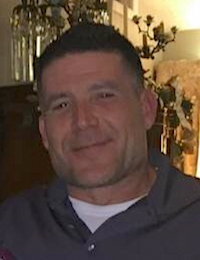Dec. 1 is World AIDS Day, and Georgia is the No. 1 state in the country for new infections. In 2018, the Centers for Disease Control and Prevention called HIV in Atlanta an epidemic, and cases are not slowing down.
A diagnosis of human immunodeficiency virus or HIV is no longer a death sentence if caught early and treated.
But even with rapid tests and effective drugs readily available, HIV still remains an epidemic.
National Director for Communications and Community Engagement for AIDS Healthcare Foundation Imara Canady called HIV and the disease it causes, acquired immunodeficiency disorder or AIDS, a critical illness.
“If we can, first of all, get folks tested and then get them into care and maintain their care, people across our country are not only living but thriving while living with HIV,” said Canady, who also serves as a board member for the Atlanta-based National Center for Civil and Human Rights.
Canady said World AIDS Day, recognized annually on Dec. 1, is a time to bring communities together.
“I think it’s also a time of reflection,” he said.
He emphasized the need to recognize and elevate the work that still needs to be done.
“I wish that I could say that we are proud of where Georgia and particularly the Atlanta Metropolitan Community ranks in terms of new HIV diagnosis annually,” he said. “But we continue to rank in the top five states and cities across the country.”
The 2022 UNAIDS World AIDS Day report reveals that inequalities are obstructing the end of AIDS, and, according to current trends, the world will not meet agreed global targets on AIDS by the 2030 goal.
“Millions of lives are at stake,” the organization reported. “The new UNAIDS report shows that only urgent action to tackle inequalities can get the world’s AIDS response on track. It shows how world leaders can tackle those inequalities, and calls on them to be courageous in doing so.”
Atlanta has one of the highest HIV infection rates in the world
Dangerous inequalities contribute to the AIDS epidemic in the South, where more than half of new HIV diagnoses in 2019 were reported. Half of those new cases were among Black people.
The latest data cited by Dr. Melanie Thompson show Black people make up 72% of new HIV diagnoses, and almost 10% of new cases are among Hispanic or Latino individuals.
“And only 16% being in white persons,” she said. “So the racial disparities are really stark here in Georgia.”
Thompson said Georgia is getting better at tracking data related to transgender people, who make up about 3% of new HIV cases.
“What we are seeing here is an epidemic that really mirrors the kind of health disparities that we see in other diseases, and is part and parcel of our socioeconomic, social determinants that are really tilted against people of color,” she said.
Georgia ranks in the top five nationally for people living with HIV — over 60,000 in 2020.
In fact, the Centers for Disease Control and Prevention reported that one in 51 people in Atlanta, may be infected with HIV/AIDS at any given time, and, in 2018, declared HIV/AIDS an epidemic in the most populous city in Georgia.
RELATED:
Michael Hokanson, the spokesperson for the North Central Health District, which serves 13 Georgia counties, said in July that he blames the COVID-19 pandemic for the lack of recent HIV data and for people falling out of care.
“For about a year into the COVID-19 pandemic, our health departments were essentially focused entirely on COVID-19 testing,” Hokanson said. “A lot of our services went by the wayside.”
In addition to the burdens on clinics during the pandemic, the monkeypox virus has been exacerbating the places taking care of people with HIV.
“And all of that without substantial new funding and without substantial increase in our workforce,” Thompson said. “In fact, our workforce has declined over time and continues to decline as people leave medicine, move to other places, and some of them get sick and burned out.”
Another problem, Thompson said, is that people are finding out they have been living with HIV for awhile.
Funding prevention and care through Medicaid
Both Thompson and Canady agree that providing better access to preventative measure like testing and access to ongoing care is the best way to save lives and stop the spread of HIV. But Georgia remains committed to not expanding Medicaid.
Gov. Brian Kemp succeeded in making Georgia the only state in the country with a work requirement for Medicaid coverage.
Eve Byrd with the Carter Center previously said the waivers’ proposed requirements are a step backward for the state, which already ranks poorly for many health-related issues including maternal care.
To require people with mental health conditions to work in order to receive health care — when they’re at the poverty level already — is really quite absurd, Byrd said, adding that no one expects to get sick, be it with cancer or depression.
The Carter Center said in its statement that people in Georgia with mental health and substance use disorders “need access to health insurance first, so that they can stabilize their conditions and become capable of holding a steady job to support themselves in the long term.”
Byrd said about 20% of the population faces these health issues.
“It’s not friendly to the general population, and it’s certainly not friendly to those who every day are trying to receive the health care they need for their chronic disability,” Byrd said.
Canady said Medicaid expansion advocates must speak up, speak out and remind elected officials, from the federal level to the state, county and individual municipality levels, of the importance of ensuring proper funding for HIV care, treatment and prevention.
“Georgia must expand Medicaid,” Thompson said.
The state ran a $6.57 billion surplus during fiscal 2022 and now has a record $5.24 billion on hand. Much of that money comes from federal COVID relief funds that were not spent in Georgia.
______________
This article appears on Now Habersham through a news partnership with GPB News
















